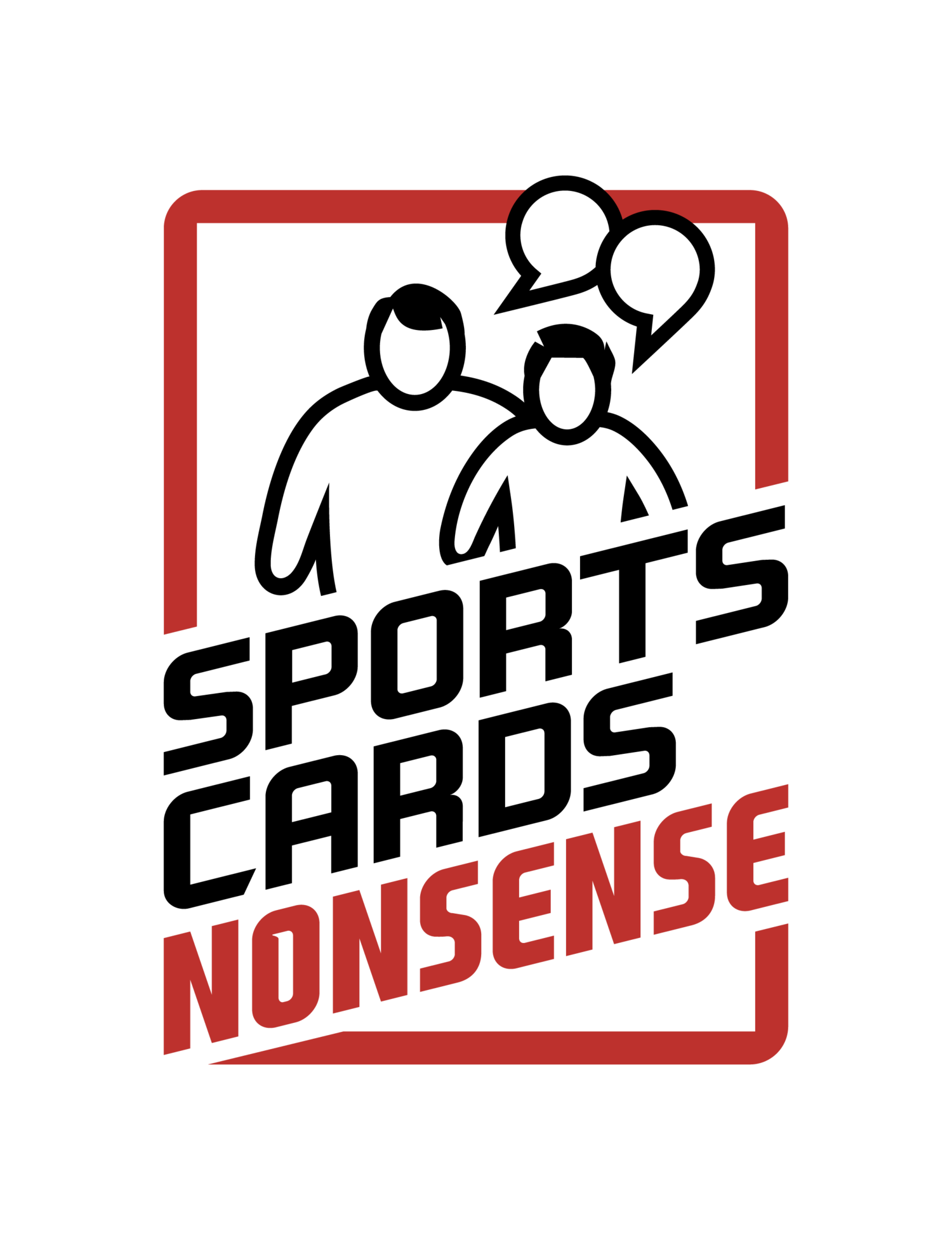Comps
Of all the subjects I’ve discussed, heard, seen or experienced in my nearly 40 years in this business, there are few that evoke more passion and fury than the term “comps”, no question about it.
I’ve seen grown men begin with a civil discussion and quickly escalate into a borderline brawl.
I’ve seen cards thrown across the table.
I’ve seen more middle fingers than I can remember raised angrily over this topic, and I’ve even seen an adult man spit on a trading card in the heat of a discussion about comps.
Here’s the deal though…. They’re necessary.
They really are.
So all of you who hate and find creative and convenient ways to twist these numbers — get over it.
Baseball cards are a commodity at the end of the day, no different than your house, than a share of stock, than a painting or sculpture.
The market determines value — period.
I’m sorry if you find that repulsive, or better yet, you believe you’re the authority on that card, hence you get to determine what it’s worth.
Here’s a newsflash for you — you’re not, and your opinion on the value is, well, has no value at all.
I had a person come up to me and offer me 50-percent of the sticker price for a card at a recent show.
He was adamant about my over-inflation of the price of the card to the point where he was getting upset each time I declined his offer.
I pulled out my phone and showed him the last five comps of the card, and then told him how I was actually under those most recent prices already.
“I don’t believe in comps.” he said. “Those are cards already sold.”
“Well, you’re right,” I answered. “But that’s how value is determined, based on what things sell for, what the market says it is worth at this moment…so.. I mean, if you go to sell your house, or buy a house, they look at what similar homes in the neighborhood are selling for, right? They don’t just say, "I think this house is worth $10,000 because I say so, even though every other similar house is selling for $150,000.”
Before I could finish he slapped my phone away and told me to “F-off,” storming away.
A few hours later as II took my afternoon stroll around the show floor, and because, every so often, the trading card Gods do in fact look my way, tucked in the corner of the last row of tables at the show was a single showcase — and this guy was standing right behind it, talking back and forth with a few folks who had gathered there.
So, of course, I walked up to his table politely, pointed at a card that was marked with a sticker that said $80.
“I’ll give you $40 for that card,” I said. “That’s a fair price.”
He didn’t say a word at first, just looked through me with a stare that was ice cold. “No.”
“Okay,” I answered. “What’s the best you can do?”
“What you see is what it is.” he said.
“All right,” I said, pulling my phone out. “Let me just get the latest comps on that baby.”
I scrolled a moment as others looked over the showcase.
“Looks like the last four comps were $50, $43, $58 and $48,” I held the phone in his direction. “So, $50 work? That seems pretty fair.”
“No,” he growled.
“You’re almost double what the card is worth,” I said. “How do you know how to even price it?”
“It’s worth what I say it’s worth.” he said.
“It’s not worth anything just sitting in that showcase,” someone said. “And at that price, that is all it’s gonna do is just it there.”
I’m not normally such a smart-ass, but I’ve had about enough of these comp-haters.
Is it a perfect system?
Absolutely not.
But it’s all we have to go on right now, and that’s not going to change.
Gone are the days of Beckett magazine each month with its price guide.
Today’s world is instantaneous.
So please, appreciate the fact that the market sets the price for commodities such as wheat, oil, houses and trading cards.
These numbers are extracted from recent sales of similar items, sports cards are not the exception because either you bought the card poorly or you simply don’t agree.
Remember, you always have the right to hold the card or not purchase it for market value.
So please, remove the stick from your butt and enjoy the hobby.

